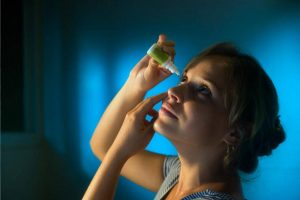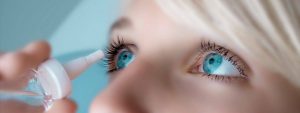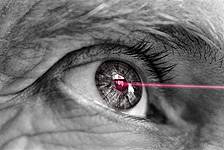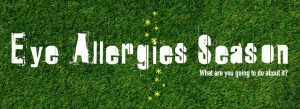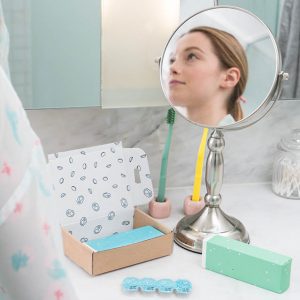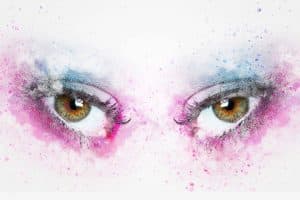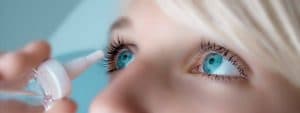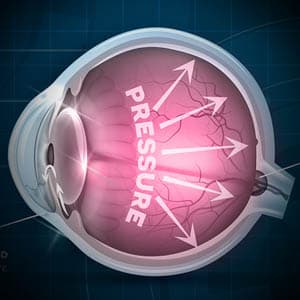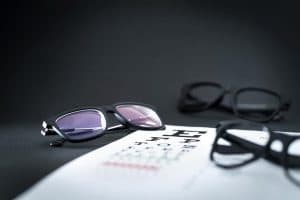Allergies and Contact Lenses: Part 2 Q
Pollen is not the only cause of allergies that can affect your eyes and make wearing contact lenses uncomfortable. Dust, mold, smoke, and pet dander
Read MoreTop 8 Tips for Allergies and Contact Lenses
Do you suffer from allergies, but also want to wear contact lenses? Pollen is not the only cause of allergies that can affect your eyes
Read MoreEyes and Herpes: Q&A
Herpes eye infection requires urgent medical attention. Eye herpes, also known as herpes keratitis, is a viral infection of the eye caused by the herpes
Read MoreIs Sleeping in Contact Lenses Dangerous?
About one-third of contact lens wearers occasionally sleep with their lenses. It’s easy to fall asleep in your contact lenses; one minute you’re reading a
Read MoreCan Eye Drops Be Overused?
Overusing eye drops can cause more harm than good. Do you find yourself constantly reaching for eye drops? While eye drops may provide satisfying and
Read MoreDry Eye or Eye Infection?
Are your eyes red and irritated? Is it dry eyes or an eye infection? To help you out, here are the key differences between dry
Read MoreGlaucoma, Tunnel Vision and Low Vision
Glaucoma causes ‘Tunnel Vision’ and is one of the leading causes of blindness worldwide. Glaucoma is an eye diseases that damages the optic nerve, leading to permanent vision loss. The most common type of glaucoma shows no early warning signs, and can only be detected during a comprehensive eye exam. If left untreated, glaucoma can cause peripheral vision loss and even permanent blindness.
Read MoreGlaucoma: What are the Signs?
Did you know about 3 million people in the U.S. are affected by glaucoma, but only half are aware they have it? Over 90% of
Read MoreWhen are Atropine Eye Drops Used?
Atropine is an essential eye drop used by eye doctors in both the diagnosis and treatment of many eye conditions. When you go for your
Read MoreCan Sleep Apnea Affect Your Eyes?
Sleep apnea can affect not only your physical health, but can have serious consequences for your eyes and vision too. If you have sleep apnea,
Read MoreWhich Foods Help Dry Eyes?
Over 50% of all adults experience dry eyes. Other than dryness of the eye, symptoms of dry eye include burning, irritation and grittiness. While studies
Read MoreOcular Rosacea
Of the more than 16 million people in the United States who have rosacea, more than 60% will experience eye-related symptoms. More than 10% of
Read MoreGlaucoma: Can Meditation Help?
Could meditation be the next glaucoma ‘wonder drug’? Can adding meditation to your day help manage your glaucoma? What is Glaucoma? Glaucoma is a common
Read MoreScleral Lenses After Laser Surgery
Have you had laser eye surgery and are now experiencing post-surgery complications? If you have had laser eye surgery but still have blurry vision, scleral
Read MoreTypes of Eye Allergies
Up to 25 percent of people worldwide suffer from eye allergies. If you suffer from eye allergies, you may be wondering what is causing your
Read MoreBurning Eyes at Night
If your eyes are burning at night, you may be suffering from dry eye syndrome. Dry eye syndrome can put a damper on your day
Read MorePink Eye or Allergies?
Do you find that you sometimes struggle to open your eyes due to severe eye discomfort? Eye allergy symptoms can sometimes mimic an eye infection,
Read MoreLazy Eyes Need Binocular Vision Therapy
Vision therapy has been shown to be the most effective solution for lazy eye, as it treats the underlying cause of the condition. A lazy
Read MoreDry Eyes and Aging
Dry eyes affect the quality of life for up to 30 percent of adults over the age of 50. Dry eye syndrome (DES) is a
Read MoreDry Eyes: What Is Intense Pulsed Light Therapy?
Intense pulsed light (IPL) therapy treats the underlying cause of meibomian gland dysfunction (MGD) and dry eye syndrome (DES), providing long lasting results for millions
Read MoreEye Allergies and Contact Lenses
Eye allergies can cause a host of uncomfortable symptoms, making contact lens wear difficult for many allergy sufferers. Eye allergies can cause any of the
Read MoreWhy Do My Eyes Feel Gritty?
Gritty eyes can make your eyes feel scratchy, rough and irritated— almost as if a piece of sand is stuck in your eye. Gritty eyes
Read MoreHow Is Meibomian Gland Dysfunction Treated?
Meibomian gland dysfunction (MGD) is one of the leading causes of dry eye syndrome and blepharitis. Recent studies show up that to 59 percent of
Read MoreTips for Allergic Eyes
Did you know that up to 25 percent of people suffer from eye allergies? Eye allergies can develop at any time during the year, and
Read MoreDry Eyes or Eye Allergies?
If over-the-counter allergy eye drops do not relieve your dry, itchy eyes, it may be time to schedule an appointment with your eye doctor. Common
Read MoreManaging Dry Eyes in the Spring
Do you suffer with dry eyes that worsen in the spring? If you also suffer from seasonal allergies, your dry eye symptoms may worsen in
Read More8 Ways to Prevent Winter Dry Eyes
Harsh winter weather is commonly linked to dry, itchy skin, but did you know that this cold, snowy season can have similar effects on your
Read MoreKeratoconus Treatment: Corneal Cross-linking
Keratoconus is a progressive eye disease that weakens the cornea and changes its structure — leading to vision problems and even vision loss. The cornea
Read MoreCan Pregnancy Affect Vision?
Most moms-to-be are well aware of the bodily changes that remind you on a daily basis that you are expecting— the most common being: morning sickness, food aversions, heightened sense of smell, swollen ankles, headaches, exhaustion, and many other uncomfortable yet normal pregnancy symptoms. What you may not know is that these physiological changes that take place during pregnancy can also lead to changes in your eyes and vision.
Read MoreCommon Contact Lens Problems
While wearing contact lenses is a safe alternative to eyeglasses, they can come with problems that you may not expect— especially if you are a new contact lens wearer. Here are some of the most common contact lens problems, and how to avoid them.
Read MoreDry Eye and Menopause
Approximately 61 percent of perimenopausal and menopausal women are affected by dry eyes. Many women during menopause suffer with dry eyes. During menopause, the body
Read MoreSystemic Diseases That Cause Dry Eye
Up to 70 percent of patients with systemic conditions suffer from dry eye. Dry eyes is a common condition caused by insufficient tear quantity, or
Read MoreMyopia Management FAQs
Q1: What is myopia? A: Myopia is a refractive error, or a vision condition that affects the ability to see distant images or objects clearly.
Read MoreNormal Tension Glaucoma
What is normal tension glaucoma (NTG)? Glaucoma is the name for a group of ocular diseases that occur as a result of: High eye pressure
Read MoreGlaucoma FAQs
The top 12 glaucoma questions asked by patients to their eye doctors.
Read MoreWhat Is Open Angle Glaucoma?
Open-angle glaucoma accounts for more than 80% of all glaucoma cases. Open angle glaucoma (OAG) is the most common form of glaucoma that usually progresses
Read MoreWhat Is Angle Closure Glaucoma?
Angle closure glaucoma is a rare, but serious form of glaucoma that requires immediate medical attention. Closed angle glaucoma develops as a result of a
Read MoreInternal Eye Infections
Here is a guide to the most common internal eye infections, their symptoms, and treatment methods. Eye infections can be quite uncomfortable, causing redness, pain,
Read MoreWhat is Myopia Management?
Myopia management has shown to decrease myopia progression by up to 78%. Myopia management is a treatment program to keep the level of myopia as low as possible, and reduce your risk of developing a serious sight-threatening eye disease. Myopia management can involve the use of eyeglasses, contact lenses, and eye drops— all scientifically proven to aid in the control of myopia progression.
Read MoreEyelid Conditions
What is the function of the eyelid? Your eyelids play a crucial role in protecting your ocular health. Eyelids cover the delicate cornea. Without the
Read MoreBlepharitis
What is blepharitis? Blepharitis is one of the most common ocular conditions caused by an inflammation of the eyelids, usually as a result of a
Read MoreNatural Remedies for Dry Eyes
Wondering what you can do to relieve dry eyes… naturally? You may be wondering what you can do to naturally relieve your dry eye symptoms?
Read MoreGuide to Eye Drops
What are eye drops used for? Eye drops are commonly administered or prescribed by eye doctors for a number of different reasons. The most common
Read MorePinguecula and Pterygium
Pingueculae and pterygia are benign growths that appear on the eye’s conjunctiva, the clear covering over the white part of your eye. What is a
Read MoreWhat is Glaucoma?
Have you been diagnosed with Glaucoma? Glaucoma is a progressive ocular disease that causes vision loss from damage to the optic nerve, which is responsible for carrying visual signals between the eye and brain.
Read MoreHow to Prevent Eye Allergies
If you suffer from red, sore allergic eyes, there are several ways to prevent this condition from affecting your life. Allergies are a common complaint,
Read MoreLazy Eye: The Latest Research
The Pediatric Eye Disease Investigator Group (PEDIG) research provided evidence-based studies on treatment for children with lazy eye. PEDIG research on the effectiveness of lazy
Read MoreWhy Is Myopia Management Important?
Is there a way to prevent my child’s myopia from worsening? A number of recent studies suggest that it may be possible to control myopia by totally stopping, or at least slowing down, its progression during childhood and teenage years. Myopia management is a treatment program aimed at controlling myopia, keeping the level of myopia as low as possible, in order to reduce your child’s risk of developing vision threatening eye diseases later in life.
Read MoreEye Drops For Children
What are eye drops used for in children? Your eye doctor may have used eye drops during the eye exam of your child or may have prescribed eye drops for their use. Eye drops are commonly administered or prescribed by eye doctors for children.
Read More


